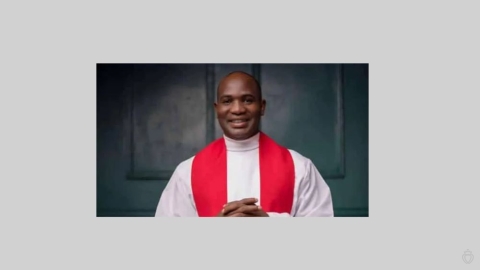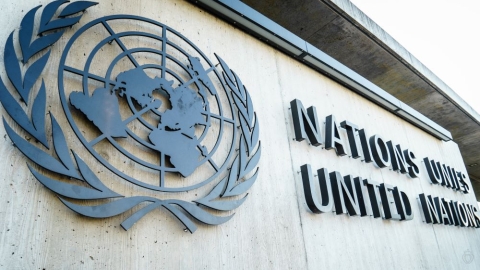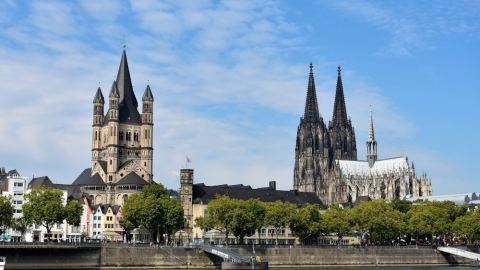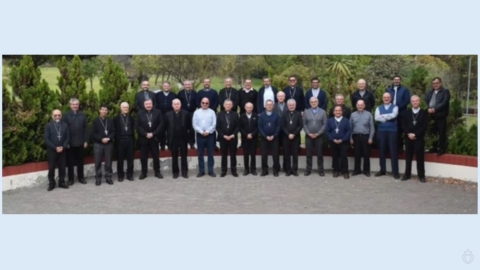Waiting for the Synod on the Amazon: The Encyclical Laudato si’ (3)
As the Synod on the Amazon begins, the anxieties surrounding this event have only grown in recent months. Given the central place it occupies in the preparatory document or Instrumentum laboris published on June 17, 2019, it is important to understand what Pope Francis means by “integral ecology.” He speaks of it in the encyclical Laudato si’.
The first article presented one of the advisors for the “scientific” aspect of the pontifical text. The second summed up the current widespread criticism of what Pope Francis is expressing, trying to understand its meaning and scope. What is needed now is a study of the heart of the encyclical: integral ecology.
The Concept of Ecology According to Francis
In the context of his severe criticism of the world today (see article 2), Francis is revealing to “the whole human family” his concept of ecology which deals with environmental issues, but also with economics, politics, ethics, culture—and, incidentally, religion.
Definition
The pope gives his definition of ecology in section No. 138: “Ecology studies the relationship between living organisms and the environment in which they develop.” This is the definition in the dictionary. But it is specified by the integration of man’s activities, with his “world” or his “environment,” which justifies the “integral” qualifier.
God is at the summit of ecology because, “the best way to restore men and women to their rightful place,…is to speak once more of the figure of a Father who creates and who alone owns the world (No.75). “Each creature has its own purpose” (No.84) and we are a “universal family” (No.89). Thus there is a “human ecology” founded on “the relationship between human life and the moral law, which is inscribed in our nature” (No.155). This ecology of man mainly manifests itself in the common good, the object of politics (No.156).
Various Components
The human environment is represented by the society in which it lives and the institutions that regulate it (No.142). Therefore, ecology must incorporate a social aspect (Chapter 4, Title I), inseparable from the common good (No.156). As for culture, it constructs the human identity and takes its place as a part of the “integral” concept of ecology (Chapter 4, Title II).
Economics and finance shape the world: by the power they give, by the entrepreneurial capacity they provide, by the work they generate. Ecology (No.141) must integrate these aspects as well as technological achievements: the development of urban planning (No.150), working conditions (No.125), and all the innovations that daily modify living conditions. (nos. 44 and 47).
The environment is finally the natural milieu, that which was given to us by God (No. 5), and which is indispensable to our equilibrium (No.139). In the second chapter Francis takes up “the gospel of creation” especially intended for Catholics.
Analysis of This Definition
This concept covers what philosophy characterizes as the practical sciences, essentially doing but also acting. But it is at a different, more concrete level. It is therefore an attempt to synthesize the human sciences: politics, farming, sociology, economics, finance, and ecology in the scientific—or biological—sense of the term.
This concept is reminiscent of the synthesis of Auguste Comte (1798-1857), the founder of positivism, who saw in sociology the crowning achievement of all human knowledge. In the same way, for Francis, integral ecology is what would be the culmination of all social sciences, allowing a global approach—holistic or integral—to human nature.
This thought, which has the merit of being original, remains in the pure natural domain. The mention of God at the summit of this edifice does not change anything, since He is considered solely as the author of nature.
The Environmental Disaster and its Causes
The denunciation of the “serious disrepair of our common home (No.61)” occupies most of the encyclical. It identifies the damage to the environment and details the causes. The “goal is…to dare to turn what is happening to the world into our own personal suffering and thus to discover what each of us can do about it” (No. 19). An examination of conscience with contrition and satisfaction, so to speak...
The Degradation of Human Living Conditions
The comparative analysis begins with an “environmentalist manual”: global warming, water scarcity, disappearance of species, pollution, culture of waste...The encyclical links the degradation of the environment to the deterioration of the quality of life, social deterioration to chaotic urbanization, pollution of all kinds, the digital invasion that tends to isolate individuals and homogenize cultures. Number 25 states: “Climate change is a global problem with grave implications: environmental, social, economic, political and for the distribution of goods. It represents one of the principal challenges facing humanity in our day.”
The Political Cause: North/South Opposition
Francis sounds the alarm: “The pace of consumption, waste and environmental change has stretched the planet’s capacity” (No. 161). He then picks up his preferred theme: “the deterioration of the environment and of society affects the most vulnerable people on the planet” (No.48). He denounces the “environmental debt” of the North who has used resources for a frenzied development from which the South has not profited, leaving behind an ecological disaster. He finally stigmatizes “the weakness of international political responses” and the idea that “politics are subject to technology and finance” (No.54), omnipresent themes in his analysis.
The Ultimate Causes
He then takes on “the human roots of the ecological crisis” which is “the globalization of the technocratic paradigm” (Chapter 3, Title 2) that imposes itself on natural reality in order to bend it to its will (no.106). This paradigm exercises its influence on the economy and politics. “We fail to see the deepest roots of our present failures, which have to do with the direction, goals, meaning and social implications of technological and economic growth” (No.109).
Economics and finance, more or less independently, exert a destructive hegemony. Politics is incapable of practicing equality because of this domination, but also because of corruption and the almost exclusive search for power.
Finally, anthropocentrism by which man “contradicts his own reality” (No.115) engenders relativism. The lure of gain related to technology replaces man with a machine and the hunt for work, nevertheless essential to its ecology (No.128).
Conclusion
This ultimate analysis of the profound contemporary decadence remains strictly natural. Which does not mean that it is false in itself. Still, it presents at least a double defect.
First, that of not going back to the theological causes, especially original sin and its aftermath, which suggests partial or even ineffective remedies. Then, that of being necessarily incomplete. For who can claim to achieve, in the field of the human sciences, such a global synthesis without risking more or less serious errors of perspective in areas that evolve and are subject to public opinion?
This is the problem encountered in the Instrumentum laboris of the synod for the Amazon, which embraces disparate, sometimes highly disputed, data that they want to bring together under the concept of “integral ecology.” Aggravating factors are interpreted through a perspective influenced by liberation theology.
By posing the problem in this way, it is not difficult to guess the answers that will be given to it, nor the direction—or the color—that they will take.
(Sources : Fideliter - FSSPX.Actualités - 07/10/2019)





